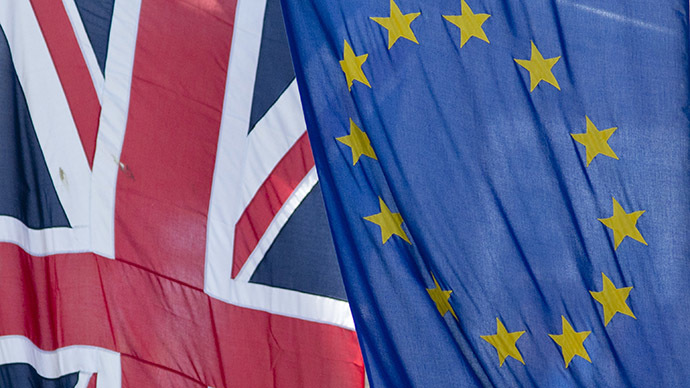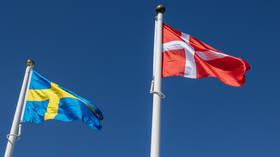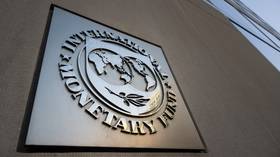Home rule for Britain? Tory backbenchers pressure Cameron on Brexit referendum

Prime Minister David Cameron is under pressure from Conservative backbenchers to timetable a referendum on Britain’s membership of the European Union.
Cameron, whose party secured a narrow majority in last Thursday’s general election, is expected to introduce legislation for an in/out referendum on the EU within the first 100 days of this parliament.
It is widely suggested the prime minister will use a plebiscite on EU membership as a bargaining chip to wrestle power back from Brussels.
Cameron has pledged to reform Britain’s role in the EU to curb benefits migration and limit freedom of movement within the bloc.
The prime minister is already facing calls for a referendum from a vocal anti-EU faction within his party.
Conservative MP John Redwood told reporters Cameron must win concessions from Brussels to avoid a Brexit.
“The British people will leave the EU unless there is a sensible offer on the table,” he said.
Redwood, who leads a group of Eurosceptic Tories in the Commons, also expressed the need to “regain control of our borders,” an oversight of member states’ annual budget and the repatriation of banking regulation.
Writing in the Guardian the day after Cameron secured a Conservative victory, Redwood said: “Conservatives and many beyond our party believe too much power has already passed to the EU.”
He went on to write: “The [EU] negotiation should stick to this fundamental question. How can the treaties be revised for all, or for the UK by exception, so that our parliament can resume its rightful role as the ultimate arbiter of our law, budgets and taxes?”
Redwood likened the call for reform of Britain’s EU membership to a campaign for ‘British home rule.’
“A Conservative party that yearns for [a] less meddling EU government will be urging the prime minister on to the full restoration of home rule,” he wrote.
Cameron also faces pressure for a referendum on EU membership from Northern Ireland’s Democratic Unionist Party (DUP), which won eight seats in the election.
READ MORE: EU referendum looms as Conservatives win majority
Up until last week the UK Independence Party (UKIP) was also a main proponent of an in/out referendum. However, their failure to secure more than one seat in the general election after a much-hyped campaign, despite winning 12.7 percent of the popular vote, means the party has lost significant clout.
Following the resignation of UKIP’s charismatic leader Nigel Farage, the party is unlikely to gain the same level of national publicity it has in the past year.
Cameron’s main challenge then is to appease the more radical anti-EU factions within his own party, if he is to avoid a rebellion in the Commons.
The prime minister said he has already begun negotiations with other European leaders, despite only just being reelected.
“I've already made calls to European leaders. So renegotiation first – then the referendum before the end of 2017,” he said.
Sources within the Conservative Party indicate Cameron is hoping to hold a referendum next year, as soon as negotiations with the EU are complete, according to the Daily Telegraph
Discussions with the EU and other European leaders will center on restricting EU migrant access to welfare benefits and limiting freedom of movement within the bloc.
READ MORE: European Council urges Cameron to keep Britain in EU
Right-leaning governments in countries such as Spain and Germany may welcome the opportunity to reform aspects of the EU, as long as they take place a Europe-wide basis.
However Manfred Weber, the leader of the conservative group in the European Parliament and an ally of German Chancellor Angela Merkel’s, said the EU’s founding principle of free movement cannot be changed.
According to a recent opinion poll by YouGov, 45 percent of people in Britain want to stay in the EU, while 35 percent would vote to leave.
Another 4 percent said they would not vote and 16 percent were undecided.












